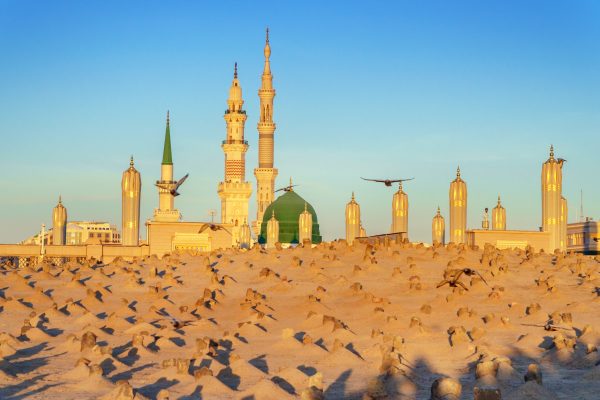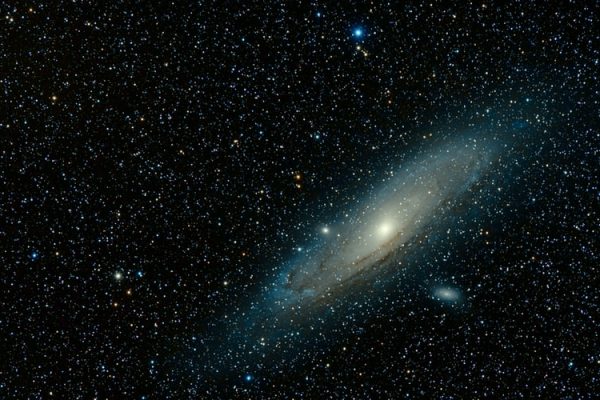By understanding why Prophet Ibrahim made the sacrifice, and why millions of Muslims sacrifice so much to go on the pilgrimage of Hajj, we can try to increase our own daily sacrifices in our devotion towards God.
By understanding why Prophet Ibrahim made the sacrifice, and why millions of Muslims sacrifice so much to go on the pilgrimage of Hajj, we can try to increase our own daily sacrifices in our devotion towards God.
Eid Al-Adha, one of the holiest holidays in Islam, is the celebration of Prophet Ibrahim’s devotion and love towards God, as shown in his willingness to even sacrifice his own son for Allah. Before Ibrahim could sacrifice his son however, God provided a sacrificial lamb instead, saving Ibrahim’s son and rewarding him with love and mercy.
Muslims around the world therefore celebrate Eid Al-Adha as the end of the Hajj pilgrimage in a commemoration of devotion and worship to Allah. Animals are sacrificed in remembrance of Prophet Ibrahim’s own offer of sacrifice, with one third of the animal given to charity, another third to family, friends, or neighbors, and the final third towards one’s own home.
Although Eid Al-Adha is a time for family gatherings, community worship, and communal acts of charity, many Muslims, including myself, find Eid Al-Adha a time for solitary spiritual reflection. In remembrance of Prophet Ibrahim’s sacrifice and devotion towards God, Eid Al-Adha can be an important time for deep personal reflection.
With the stories of Prophet Ibrahim’s sacrifice and the thought of millions of Muslims making the pilgrimage of Hajj, it can sometimes feel a bit overwhelming. What have we done in our lives to compare to the sacrifice that Ibrahim made to Allah? Are we truly being proactive in our actions as Muslims, or have we simply become compliant Muslims, who may only do the physical acts of worship but are lacking in the spiritual devotion towards God?
He [Ibrahim] said, ‘Unless my Lord guides me, I will surely be among the people gone astray.'”
By understanding why Prophet Ibrahim made the sacrifice, and why millions of Muslims sacrifice so much to go on the pilgrimage of Hajj, we can try to increase our own daily sacrifices in our devotion towards God. The simple reason why Prophet Ibrahim was able to so willingly sacrifice his own son was because of his love for Allah. His love for Allah is arguably the strongest reason why he was rewarded so much by God with the sparing of his son. The millions of Muslims who also make the annual pilgrimage of Hajj do this not because it is forced, but because this is one of the greatest acts of love one can do for Allah.
Without a deeply conscious love for God, no amount of sacrifice will ever be sufficient. Being proactive in your love and fully understanding and feeling your love for Allah can come in many forms. It can be simply reflecting and thinking. It can be reading Quran. It can be going into nature and wondering at the miracles of Allah. It comes in an infinite number of ways, which allows us no excuse to not live our lives in full love and devotion towards God.
Once this level of conscious love for God becomes a part of your spirituality, the sacrifices you make for Allah will flow naturally. No sacrifice can be made without love. And because each sacrifice you make, whether it be small or big, is coming from a place a love, this in turn becomes a holy act of devotion and worship towards God. That is what Prophet Ibrahim taught us, and that is what symbolizes the pilgrimage of Hajj every year.
We called to him, ‘O Abraham, You have fulfilled the vision.’ Indeed, We thus reward the doers of good. Indeed, this was the clear trial. And We ransomed him with a great sacrifice, And We left for him [favorable mention] among later generations: ‘Peace upon Abraham’. Indeed, We thus reward the doers of good.”
So this Eid Al-Adha, let it be a time for charity, celebrations, and acts of worship. But let it also be a time for quiet reflection and remembrance to strengthen our love for God. Without this core strength, of being conscious in our love for Allah, we can never hope to live our lives as truly submitting Muslims. May we all be blessed this Eid, and inshallah find the strength and love to live full and spiritual lives.





